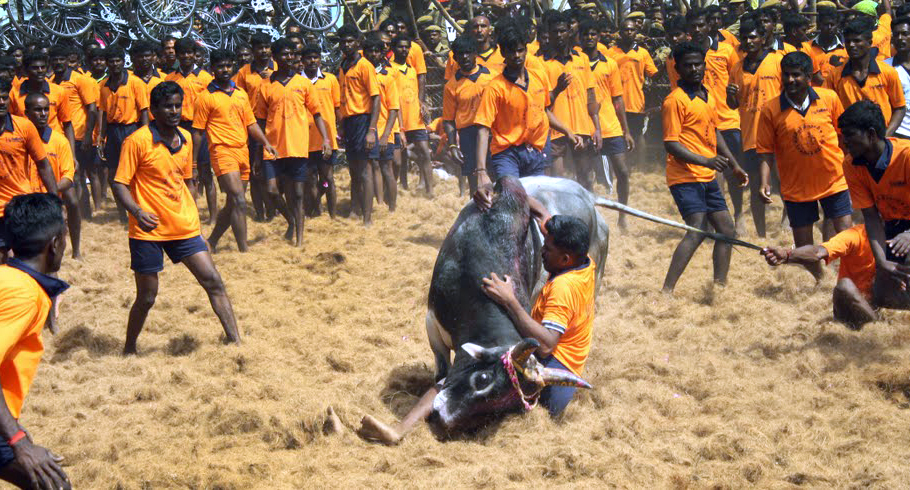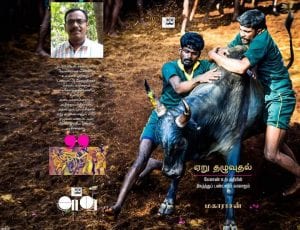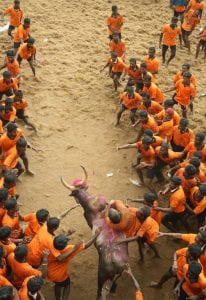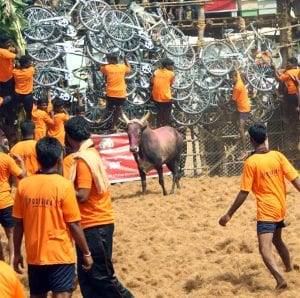
In TN, the Jallikattu bull rages on three years after pro-sport protests
Tamil Nadu is once again getting ready to host the contentious bull-taming festival Jallikattu, during the traditional Pongal festival week which starts on January 15.

Tamil Nadu is once again getting ready to host the contentious bull-taming festival Jallikattu, during the traditional Pongal festival week which starts on January 15.
It is three years since the first Jallikattu protests rocked Tamil Nadu in 2017 after the Supreme Court banned the game on a petition by the People for Ethical Treatment of Animals (PETA).
Thousands of protesters, including youths, had turned up in large numbers and on their own volition on the roads seeking reversal of the SC ban.
In Chennai, the Marina beach turned out to be the venue of a sustained, serial, multi-day protest. It assumed festive proportions as the protesters sang, danced, and listened to speeches on Tamil pride and Jallikattu’s cultural importance. It was a largely peaceful event which saw the police and the people respecting one another’s boundaries.
The protest lasted for 15 days, concluding on January 23.
Following this, the Tamil Nadu government promulgated a law making Jallikattu legal. In 2018 and 19, Jallikattu events were held across the state peacefully.

Writer Maharasan, whose book Yeru Thazhuvuthal (Taming the bull) was extensively quoted by Jallikattu campaigners, said the protests effectively made a level playing field. The game was no longer the preserve of the dominant castes.
“Ancient Tamil Nadu had five different types of ecosystems – mountains (kurinji), forests (mullai), farmland (marutham), coastal (neithal), and desert (palai). The cow is the only animal which could be found in all regions, except the coast. After the 2017 Marina protests, the animal also secured a link with the coastal region, thereby completing the cycle,” he said.
In Medieval Tamil Nadu, the bull-taming sport attained a caste overture. “Only the dominant caste could organise and take part. But the 2017 protest broke all caste dominance. Now, people from other communities too can breed a bull and organize and take part in the sport,” Maharasan said.
Also read | Marina Puratchi will reveal the truth about Jallikattu protest: Director
He felt the protest and the fallout democratised the game and brought in a new culture of inclusion across the region.
The writer said the game was more regulated than ever. “Now, the fitness of the bulls and the bull-tamers are assessed before participation, medical support teams are put in place, and security and safety of viewers ensured,” Maharasan said.

M.S. Raj, director of the film ‘Marina Puratchi,’ said the success of the protest was in the fact that the ban was annulled as the state passed a law.
Raj said the protest was a message to the governments. “The people’s struggle is more powerful than any government’s weapon. The same kind of unity showed in the struggles against Sterlite which forced the government to shut the company down.
He said the number of youth taking part in people’s struggles now is no match to the 2017 Marina protests. “One reason is that the governments and educational institutions threaten the students,” he added.
Rajasekaran, president, Tamil Nadu Jallikattu Federation, presents a more worrying scene. He said the regulations put in place after the 2017 protest has actually brought down the number of Jallikattu events.
He said the expenses had shot up after the regulations were put in place.
“Whenever people speak about Jallikattu, they always think of Alanganallur, Palamedu, and Avaniyapuram in Madurai district. These are the nerve-centres of the sport. Other than these, there were many regions which hosted Jallikattu in the past. It was their tradition. Jallikattu has become expensive. A couple of lakh rupees would be needed to set up the arena and ensure safety of the spectators,” he said.
The process of getting permission to for Jallikattu has become more cumbersome, Rajasekaran said. “If a village needs to conduct Jallikattu, they must get permission before 30 days and should publish it in the Gazette,” he said.
“According to the state’s law, any village can hold the event as per law. But officials ask for ‘proof of experience’ in conducting Jallikattu or Manjuvirattu (a form of bull taming),” he said.

So, many villages are denied permission citing lack of prior experience, he said. Many people perceive this as an attempt to cut down the number of Jallikattu events and eventually bring put an end to the sport, he added.
Since the number of cross-bred bulls like Jersey and Holstein Friesian are going up in the state, the owners of these breeds can also claim a stake in the sport. As of now, the government order states that only bulls of Bos indicus (the native variety) should be allowed to take part in the sport.
“Bos indicus includes native breeds like Kangayam, Umbalacheri, and Pulikulam. Only these bulls have humps. Bull-tamers, hold on to the hump of the bulls to subdue them during the game. The cross breeds lack the hump,” said a Nagapattinam-based veterinarian.
Generally, Kangayam and Pulikulam bulls are used in Jallikattu. In Madurai, only Pulikulam bulls are used, he added.

